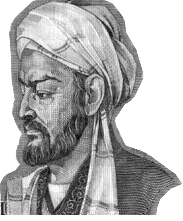Abd Allah ibn Husayn, a pivotal figure in the Shia tradition, represents the ethical and spiritual ideals deeply embedded within Islamic thought. His life and legacy continue to provide a profound source of inspiration and moral guidance for Shia Muslims worldwide. This article will explore the teachings and contributions of Abd Allah ibn Husayn, delving into his historical significance, philosophical insights, and the impact of his martyrdom on Shia identity. Each section will illuminate various facets of his character and teachings, offering a comprehensive understanding of his role in Islamic history.
Historical Context: Abd Allah ibn Husayn’s Life and Times
Born into the notable lineage of the Prophet Muhammad, Abd Allah ibn Husayn was the grandson of Imam Ali and Fatimah, the daughter of the Prophet. His life unfolded during a tumultuous period in early Islamic history, marked by the political upheaval following the assassination of the third caliph, Uthman ibn Affan. As sectarian divisions began to crystallize, Abd Allah's commitment to justice and righteousness became increasingly paramount. The Umayyad dynasty's ascendance created an environment rife with oppression, further galvanizing his resolve to stand against tyranny.
Abd Allah's legacy is inextricably linked to the events at Karbala, where he, alongside his family and companions, faced overwhelming odds against the forces of Yazid ibn Muawiya. This confrontation culminated in his martyrdom on the 10th of Muharram, known as Ashura, a date that resonates deeply within the hearts of Shia Muslims. His actions at Karbala are not merely historical events; they represent profound ethical principles that continue to shape Shia beliefs and practices.
Philosophical Insights: The Teachings of Abd Allah ibn Husayn
The ethical framework laid out by Abd Allah ibn Husayn encompasses a multitude of themes, including justice, sacrifice, and the unwavering pursuit of truth. At the core of his philosophy lies the concept of ‘Amr bil Maroof wa Nahy an al-Munkar—commanding good and forbidding evil. This principle serves as a guiding light for adherents, urging them to take action against injustice and corruption in society.
His eloquent speeches, particularly during the fateful days leading up to Ashura, encapsulate his commitment to these ideals. Abd Allah emphasized the importance of standing firm in one’s convictions, even in the face of insurmountable odds. His assertion that “death with dignity is preferable to life in humiliation” reflects a profound understanding of honor and integrity, concepts that resonate strongly within Shia thought.
The Role of Martyrdom: A Transformative Event for Shia Identity
The martyrdom of Abd Allah ibn Husayn at Karbala serves as a pivotal event that transformed Shia identity and consciousness. It is not merely the loss of life that is commemorated; rather, it is the embodiment of resistance against tyranny and the selfless sacrifice for the greater good. This martyrdom narrative has firmly entrenched itself in the collective memory of Shia communities, leading to annual commemorations known as Majlis, which recount the events of Karbala and reflect on its moral lessons.
These commemorative events serve multiple purposes: fostering community solidarity, instilling a sense of historical awareness, and providing a platform for moral and spiritual reflection. The rituals surrounding Ashura are imbued with deep symbolism, where reenactments of the battle and expressions of grief serve to rejuvenate commitment to the ideals espoused by Abd Allah. Shia Muslims view the willingness to confront injustice in their personal lives as a direct manifestation of Abd Allah's legacy.
The Legacy of Abd Allah ibn Husayn in Modern Shia Thought
Abd Allah ibn Husayn's teachings continue to resonate in contemporary discourse among Shia scholars and laypeople alike. His emphasis on justice remains a pivotal theme in modern political thought, encouraging activism against oppression and advocating for human rights. Contemporary Shia leaders draw upon his example to inspire movements that seek to rectify social injustices both locally and globally.
The ethical paradigms established by Abd Allah also influence various aspects of Shia jurisprudence, shaping the interpretation of Islamic law to align with the principles of justice and equity. By embodying the struggle against oppression, his teachings encourage a thoughtful engagement with contemporary issues, urging practitioners to maintain relevance in a rapidly changing world.
Conclusion: Embracing the Teachings of Abd Allah ibn Husayn
In integrating the rich legacy of Abd Allah ibn Husayn into the fabric of daily life, Shia Muslims are called to navigate the complexities of existence while remaining steadfast in their commitment to justice and truth. His life exemplifies a harmonious convergence of faith, ethics, and action—a model to emulate for generations to come. The teachings of Abd Allah ibn Husayn remain a touchstone for Shia Muslims, urging vigilance against oppression and inspiring hope for a more just and equitable society.


